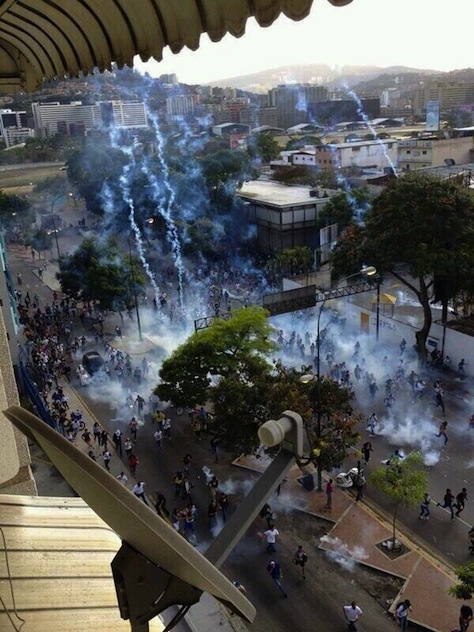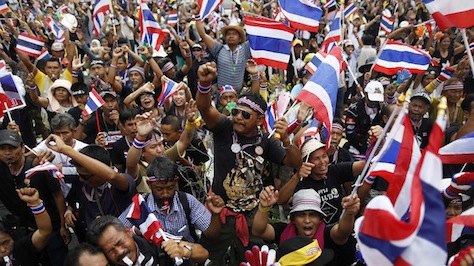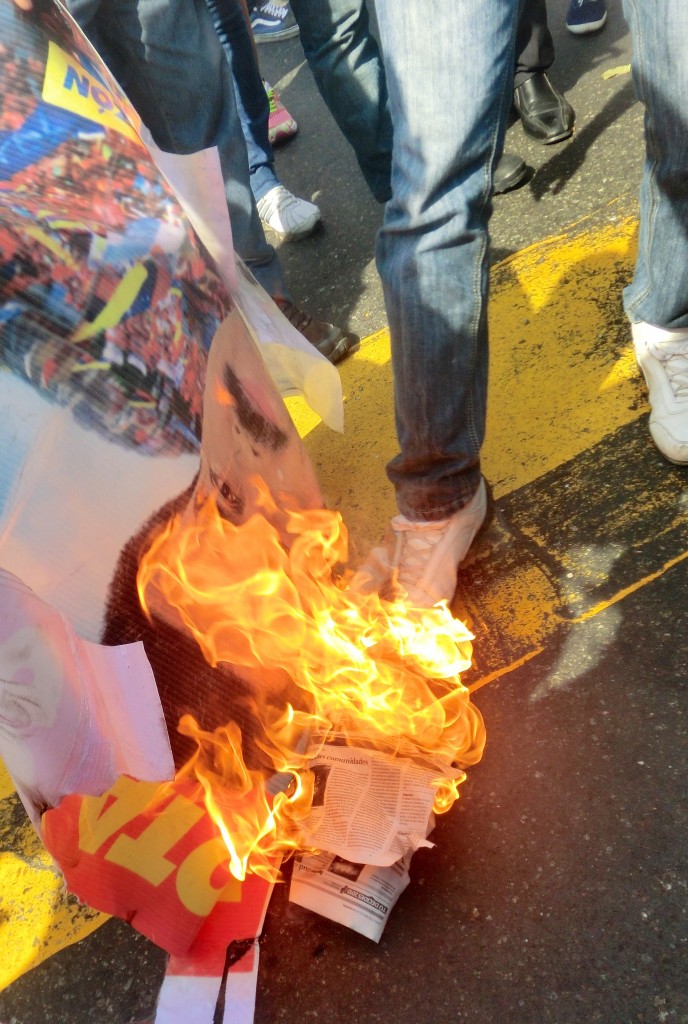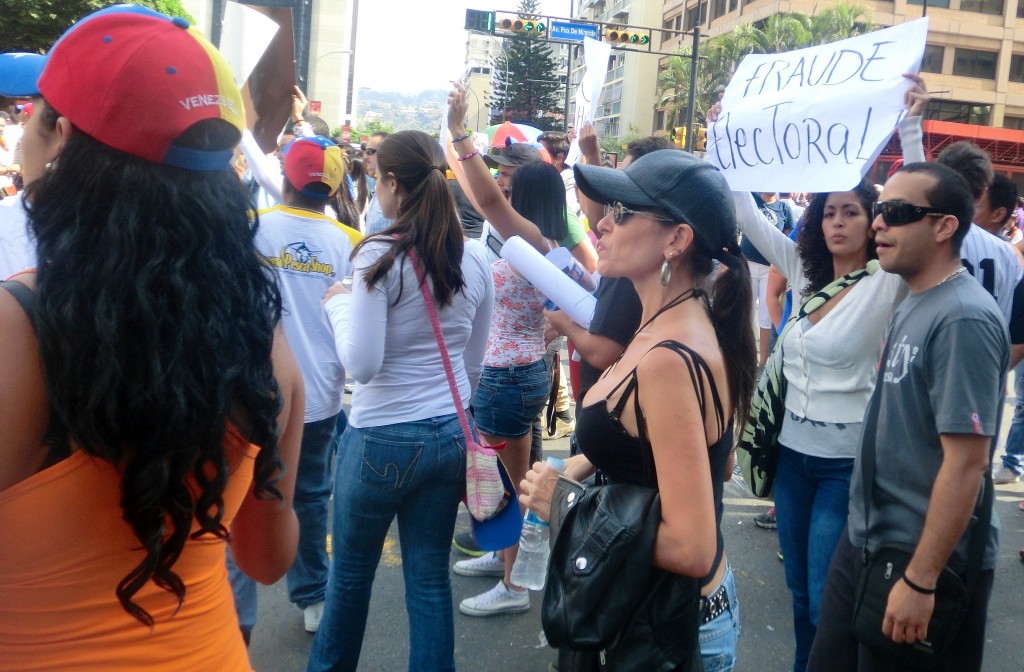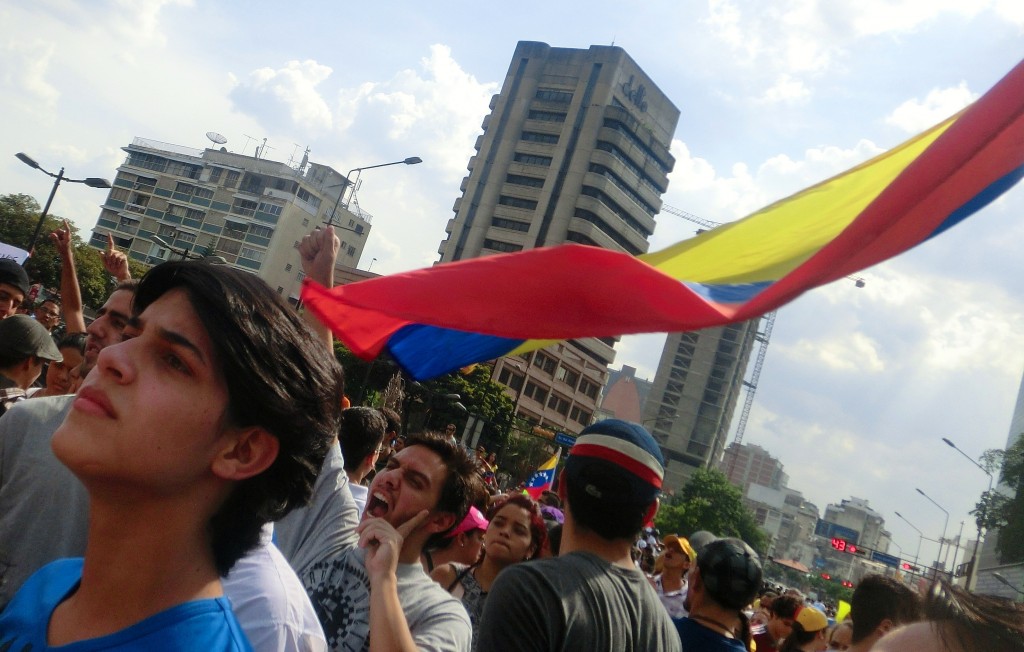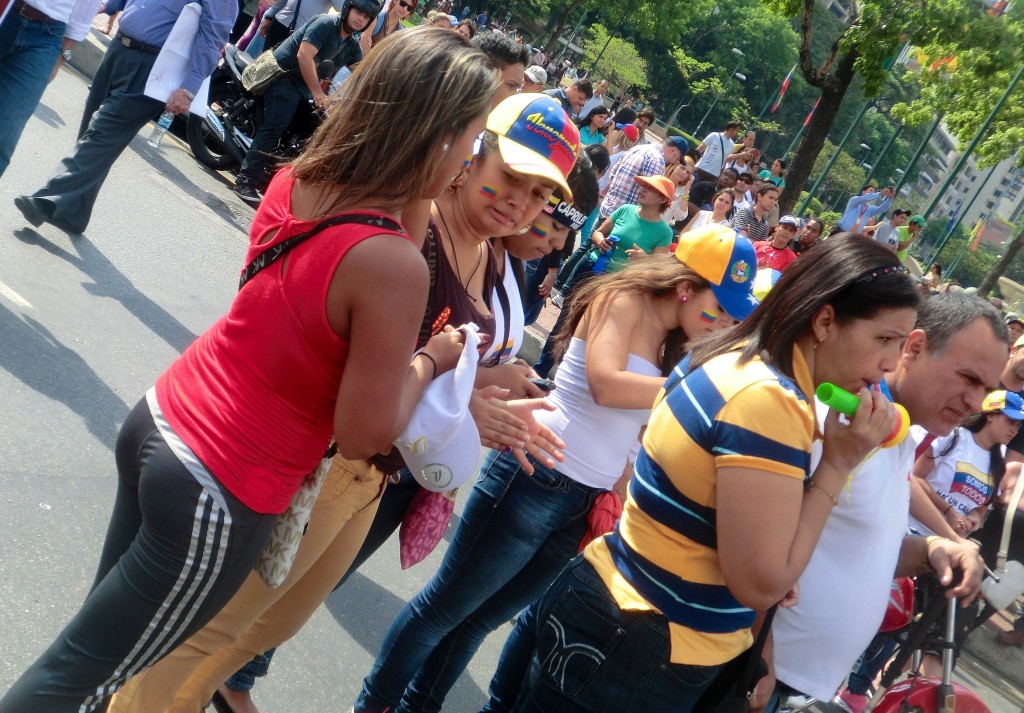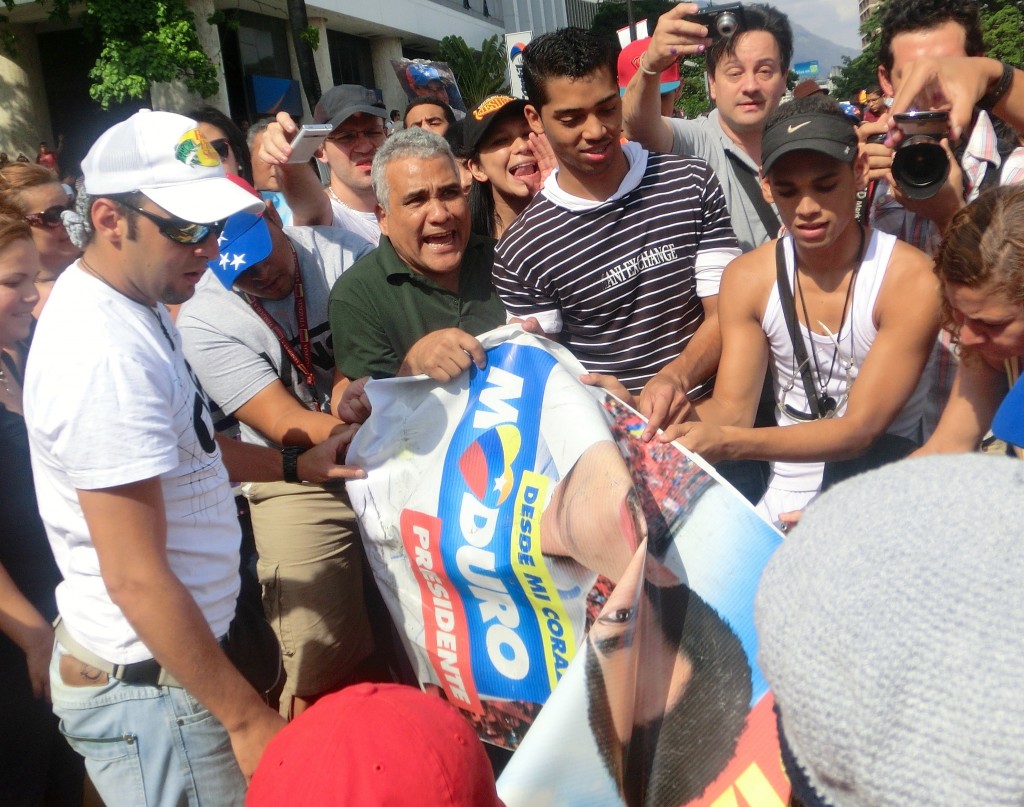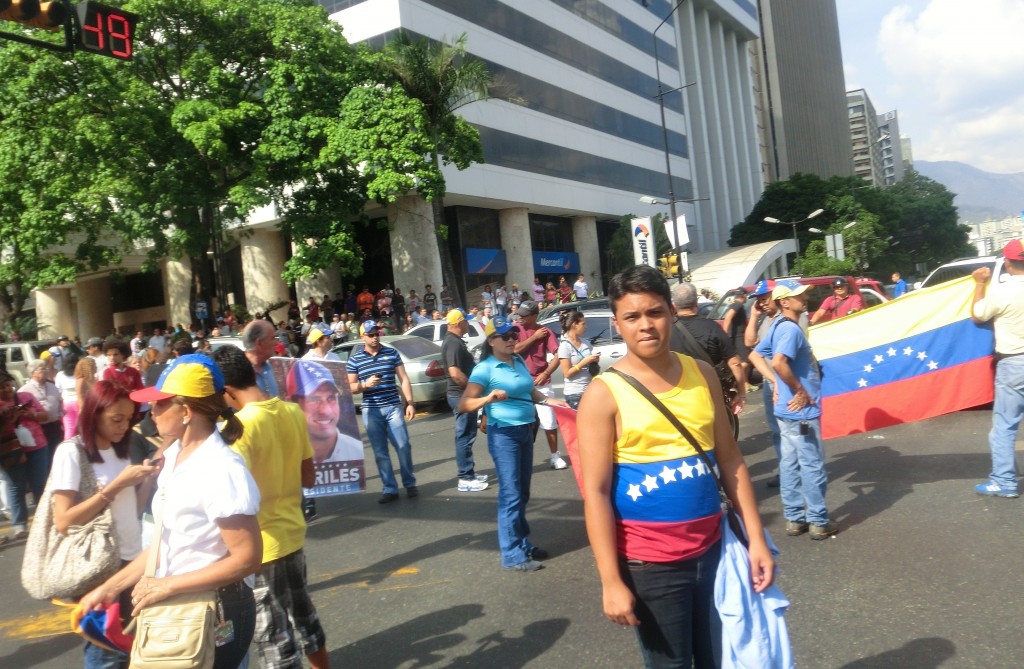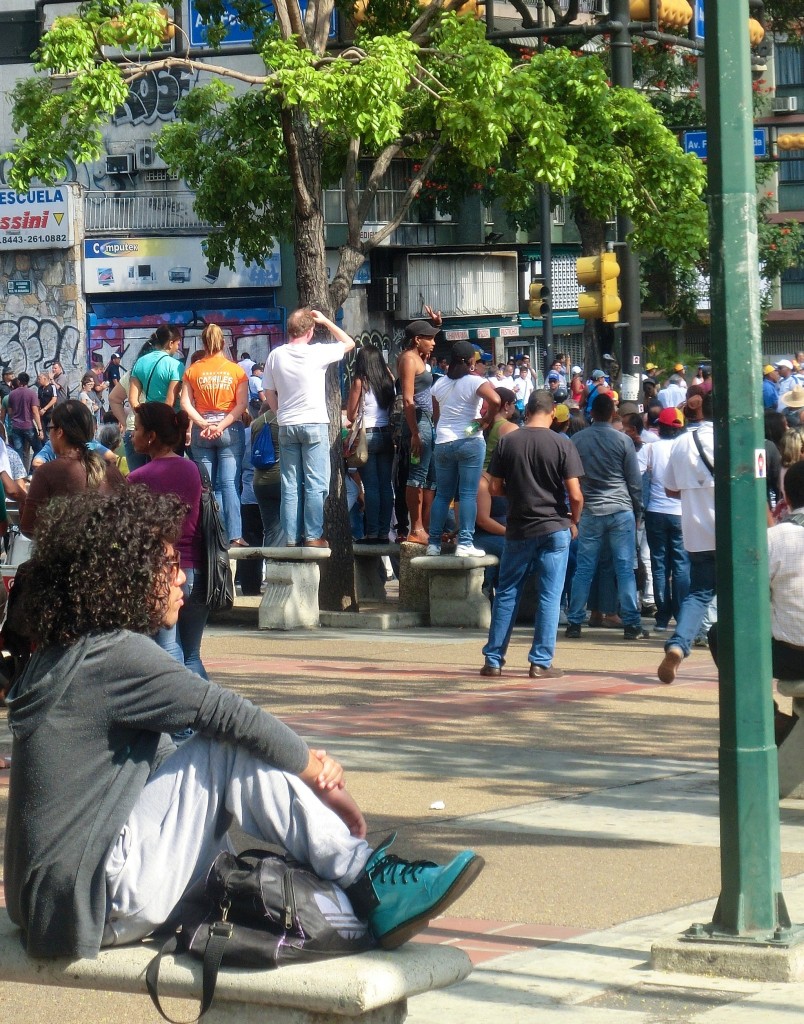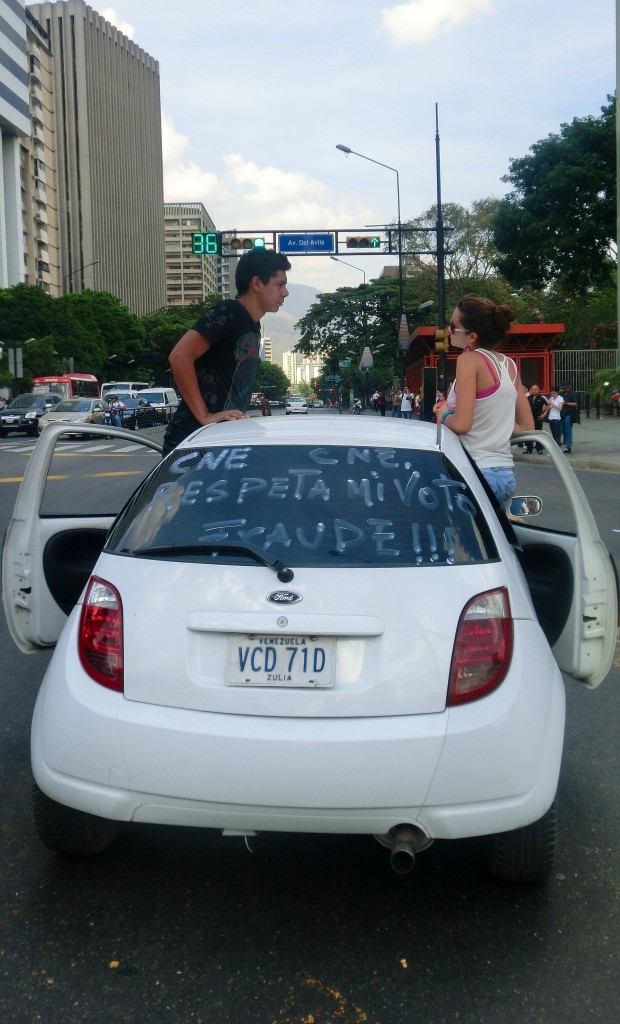Though critics can dump a lot of problems on the doorstep of Hugo Chávez’s 14-year reign as president of Venezuela, the one thing that you can’t say about Chávez is that he used state violence (as opposed to expropriation, media censorship or other tactics) to undermine Venezuela’s rule of law, excepting perhaps the aborted April 2002 coup, a complex incident in Venezuelan politics in which neither the Venezuelan military, the Chávez administration nor the Venezuelan opposition was entirely blameless.![]()
It’s hard to extend the same credit to Chávez’s successor, Nicolás Maduro, in light of the violence against protestors in Caracas, Valencia and elsewhere across Venezuela last night.
A 22-year-old beauty queen, Génesis Carmona, was shot in the head in central Valencia Tuesday night, the fifth fatality in a series of escalating student protests against the Maduro government — the photo above shows Altamira, a relatively wealthy neighborhood in Caracas that’s seen some of the most tense confrontations of the past 48 hours.
Venezuela’s oil production allowed Chávez to circumvent violent repression by using money to buy and consolidate his support among his natural base — Venezuela’s poorest citizens who hadn’t benefitted from the petrostate’s largesse (and, increasingly, a corrupt ‘boligarchy’ whose continued prosperity depends on the continuity of the chavista regime).
Though the February 2014 protests aren’t as widespread as the ones that led to the 2002 coup against Chávez, economic conditions are much poorer today in Venezuela than they were 12 years ago, when Chávez was just three years into his presidency and the country exported more oil — and other products — than it does today. The fact that five people are dead, with many more injured, is a serious escalation in a country where, though political polarization has been common for the past decade and a half, political killing has not. Maduro’s government is censoring the media even more than usual, putting much of Caracas on lockdown and arresting protestors by the truckload. Most fundamentally, governments in truly liberal democracies do not respond to political protest with lethal violence. Chávez could point to legitimate majoritarian support throughout the entirety of his presidency, even if it obscured the deterioration of the rule of law and public institutions. By contrast, Maduro’s increasingly violent response to protest underlines the fragility (or, perhaps, the illegitimacy) of his political support. Continue reading Politics turns violent in Venezuela
